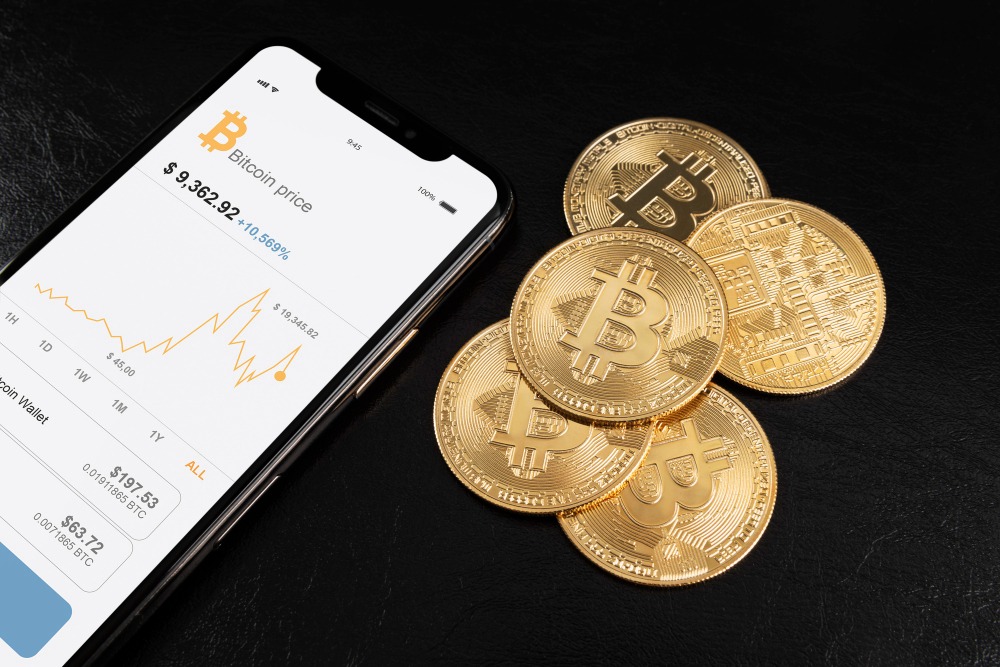As cryptocurrencies continue to grow in popularity and use cases, having a reliable and secure crypto wallet has become essential for trading and storing digital assets. A crypto wallet enables users to securely store, send, and receive cryptocurrencies like Bitcoin, Ethereum, and various altcoins. With many wallets available, each offering unique features and security measures, finding the best option for secure trading can be challenging. This guide explores the top crypto wallets in 2024, their security features, types, and tips for choosing the right wallet.
What is a Cryptocurrency Wallet?
A cryptocurrency wallet is a digital tool that allows users to store, manage, and trade cryptocurrencies. Unlike traditional wallets that hold physical currency, crypto wallets store private keys, which are crucial for accessing and transacting with digital assets on the blockchain. Crypto wallets can be custodial or non-custodial, with the former controlled by a third party (like an exchange) and the latter controlled solely by the user.
Types of Crypto Wallets
There are several types of cryptocurrency wallets, each offering varying levels of security, convenience, and functionality.
Hardware Wallets
Hardware wallets are physical devices that store private keys offline, making them one of the most secure options for storing cryptocurrencies. By being offline, they are protected from online attacks, making them ideal for long-term storage of large amounts of crypto.
- Pros: High security, offline storage, ideal for long-term holding.
- Cons: Can be costly, not as convenient for frequent transactions.
Software Wallets
Software wallets are applications or software programs that allow users to manage their crypto holdings. They are often used for quick access to assets and are available as desktop or mobile apps.
- Pros: User-friendly, quick access to assets, suitable for everyday use.
- Cons: Vulnerable to malware and hacking, especially if not used with proper security.
Web Wallets
Web wallets are online wallets hosted by a third party, typically an exchange. While they offer convenience and accessibility, they also come with higher risks, as users rely on the security measures of the host platform.
- Pros: Convenient, accessible from any device with internet.
- Cons: Prone to hacks and breaches, reliant on third-party security.
Mobile Wallets
Mobile wallets are designed for smartphones, offering crypto management on the go. These wallets are popular for daily transactions and are generally convenient for trading and payments.
- Pros: Highly portable, easy for quick transactions, user-friendly.
- Cons: Less secure than hardware wallets, vulnerable to phone theft or malware.
Paper Wallets
A paper wallet is a printed document that contains a user’s private and public keys. It’s a form of cold storage, as it is offline, but it requires extreme care to avoid loss or damage.
- Pros: Offline storage, immune to online hacking.
- Cons: Easily lost or damaged, not practical for frequent use.
Top Features to Look for in a Secure Crypto Wallet
Choosing a crypto wallet goes beyond just deciding on the type. There are several security features and functions that users should prioritize for safe trading:
- Multi-Factor Authentication (MFA): Enhances security by requiring more than one form of verification to access the wallet.
- Backup and Recovery Options: Allows users to restore wallets in case of device loss or failure.
- Private Key Control: Non-custodial wallets that give users full control over their private keys provide a higher level of security.
- User-Friendly Interface: An intuitive design ensures that users can navigate and manage assets effectively.
- Support for Multiple Cryptocurrencies: The wallet should support the types of cryptocurrencies the user intends to trade or hold.
The Best Crypto Wallets for 2024
Here are some of the best and most secure crypto wallets available for trading in 2024:
| Wallet | Type | Security Features | Best For | Supported Cryptocurrencies | Price |
| Ledger Nano X | Hardware | Secure Element chip, PIN protection, offline storage | Long-term investors and substantial holdings | 1,800+ | ~$150 |
| Trezor Model T | Hardware | PIN, password, two-factor authentication, open-source firmware | Versatile, secure hardware wallet seekers | 1,000+ | ~$170 |
| Exodus | Software (Desktop/Mobile) | Private key control, backup options | Beginners and frequent traders | 150+ | Free |
| MetaMask | Web/Mobile | Private key storage, relies on device security | Ethereum users, DeFi traders, NFT enthusiasts | ERC-20 tokens | Free |
| Trust Wallet | Mobile | Private key control, backup, recovery options | Mobile users and multi-crypto support seekers | Wide range | Free |
| Atomic Wallet | Desktop/Mobile | Private key control, encryption | Flexible, multi-asset wallet users | 300+ | Free (fees apply on some transactions) |
How to Choose the Right Wallet for Secure Trading
Choosing a crypto wallet should involve considering your trading habits, security needs, and the type of cryptocurrencies you use. Here are some key factors to consider:
- Trading Frequency: For frequent traders, software wallets with quick access and exchange integration are ideal.
- Security Needs: If you’re storing significant amounts of cryptocurrency, a hardware wallet or a combination of hot and cold wallets is recommended.
- Cryptocurrency Support: Ensure the wallet supports the specific cryptocurrencies you intend to trade or hold.
- Budget: Hardware wallets require an initial investment, while software and web wallets are typically free.
Safety Tips for Using Crypto Wallets
Even the most secure wallet requires users to practice safe habits. Here are some best practices for keeping your cryptocurrency safe:
- Use Two-Factor Authentication (2FA): Always enable 2FA for an extra layer of security.
- Keep Software Updated: Ensure wallet software and firmware are up-to-date to benefit from the latest security patches.
- Backup and Secure Private Keys: Store your private keys offline in a secure place, such as a fireproof safe.
- Avoid Public Wi-Fi for Transactions: Public networks are vulnerable to attacks; use a secure, private network instead.
- Beware of Phishing Attacks: Be cautious of suspicious links and websites, and only download wallets from official sources.
Conclusion
Selecting the best crypto wallet for secure trading in 2024 requires a balance of security, convenience, and functionality. Each wallet offers unique benefits, from hardware wallets like Ledger Nano X and Trezor Model T, which provide top-tier security, to mobile wallets like MetaMask and Trust Wallet, which offer ease of access and multi-crypto support.
As cryptocurrency adoption grows, having a secure and reliable wallet will be crucial to navigating the evolving market confidently. Whether you’re a long-term holder or a daily trader, choosing a wallet with robust security features, user-friendly design, and support for your preferred assets can help you protect and manage your digital assets effectively in 2024.


